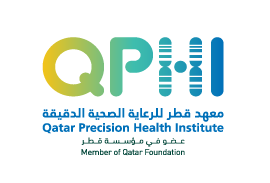
PPM1-1206-150013
| Project Information |
|---|
Proposal: Number PPM1-1206-150013 Program Cycle : PPM 01 Submitting Institution Name : Weill Cornell Medical College in Qatar Project Status : Award Tech. Completed Start Date : 3/1/2017 Lead Investigator : Prof. alice Abd El Aleem Project Duration : 2 Year(s) End Date : 30/11/2019 Submission Type : New Proposal Title : Personalized approach to muscle and neuromuscular genetic diseases in Qatar: Paths from clinical genetics and genomic signature research to preventive and precision medicine |
| Project Summary | |||||||||||||||
|---|---|---|---|---|---|---|---|---|---|---|---|---|---|---|---|
Proposal Description: Muscle diseases although are monogenetic disorders, inherited in an autosomal recessive (AR), dominant or X-linked pattern, however the marked variability in genetics and presentations can be identified within the same category of a subtype and among patients even with the same gene involvements. Gulf and Arab population is characterized by a high rate of consanguineous marriages, which favors the appearance of such group of muscle and neuromuscular diseases in multiple and successive generations. This proposal is aiming: 1- To characterize the spectrum of genetic muscle diseases in Qatar. Detailed clinical database involving brain and muscle imaging will be created to better categorize such large group of diseases into well-defined subgroups in Qatar. 2– To identify the particular genetic cause of the muscle disorder in families. Identifying the specific gene mutation will serve the preventive medicine approach via carrier detection, genetic and premarital counseling, prenatal diagnosis and preimplantation genetics. Whole genome sequencing is going to be applied to serve this aim and the following one. 3– To characterize the genomic signature in participants. Specifying the individual’s genomic and genotypic data is a principle requirement toward personalized medicine. Distinguished pattern(s) of genomic variations in a patient versus other affected members of his family; however, with variable disease severity or versus other healthy subjects (control genomes) would help to identify the genetic reasons for the variability in disease severity, course progression and occurrence of other serious manifestations involving epilepsy, brain malformation, cardiovascular defects or renal involvements. Qatar Biobank genome sequence data will help to achieve our goals by serving as the background genomes in Qatari population against which alleles frequency or variations’ characteristics will be evaluated. Sanger sequenced and functionally verified genomic data is essentially required before application in diagnostics or precision medicine. 4- To identify the proteomic profiling in patients. The SOMAscan assay; a multiplexed, sensitive quantitative proteomic tool that measures 1300 proteins in only one serum sample. Comparative interrogation of proteome in healthy and patients can help to provide insight into the disease biology and interacting pathways that investigators might have not think, before, about its contribution to disease pathogenesis. Out the generated dataset, a subset of differentially altered proteins would be analyzed for their relation to the phenotype, their role as potential biomarkers for the risk of developing or early detecting of associated manifestations. This analysis is expected to identify particular interacting pathways contributing to the disease phenotype and constituting targets for a personalized plan of therapeutics and additionally to better understanding the disease pathogenesis. The proposal’s study apart from being the first to be done in Qatar and probably the Gulf area is serving multiple blocks of precision medicine; diagnosis of unknown genetic defects, preventing recurrence of muscle disorders in families and hence the local community, better classifying clinical and genetics subtypes, developing information about the distribution and prevalence of genetic muscle diseases in Qatar, build defined clinical, imaging and genetic databases for muscular disorders’ patients in Qatar and provide the platform to enable the achievement of personalized and preventive medicine. This kind of epidemiological information will help to know more about the size of the problem and to design the strategic priority plan accordingly. Research Area Keywords: clinical and genomic signature of muscle diseases; proteome profiling in genetic muscle diseases; pathways to persenolized medicine in muscle diseas; personalized approach to preventive medicine; novel genes and pathways targets in muscle disease Research Type Applied Research
|
| Project Summary | ||||||||||||
|---|---|---|---|---|---|---|---|---|---|---|---|---|
|
| Personnel | |||||||||||||||||||||||||||||||||||||||
|---|---|---|---|---|---|---|---|---|---|---|---|---|---|---|---|---|---|---|---|---|---|---|---|---|---|---|---|---|---|---|---|---|---|---|---|---|---|---|---|
|

